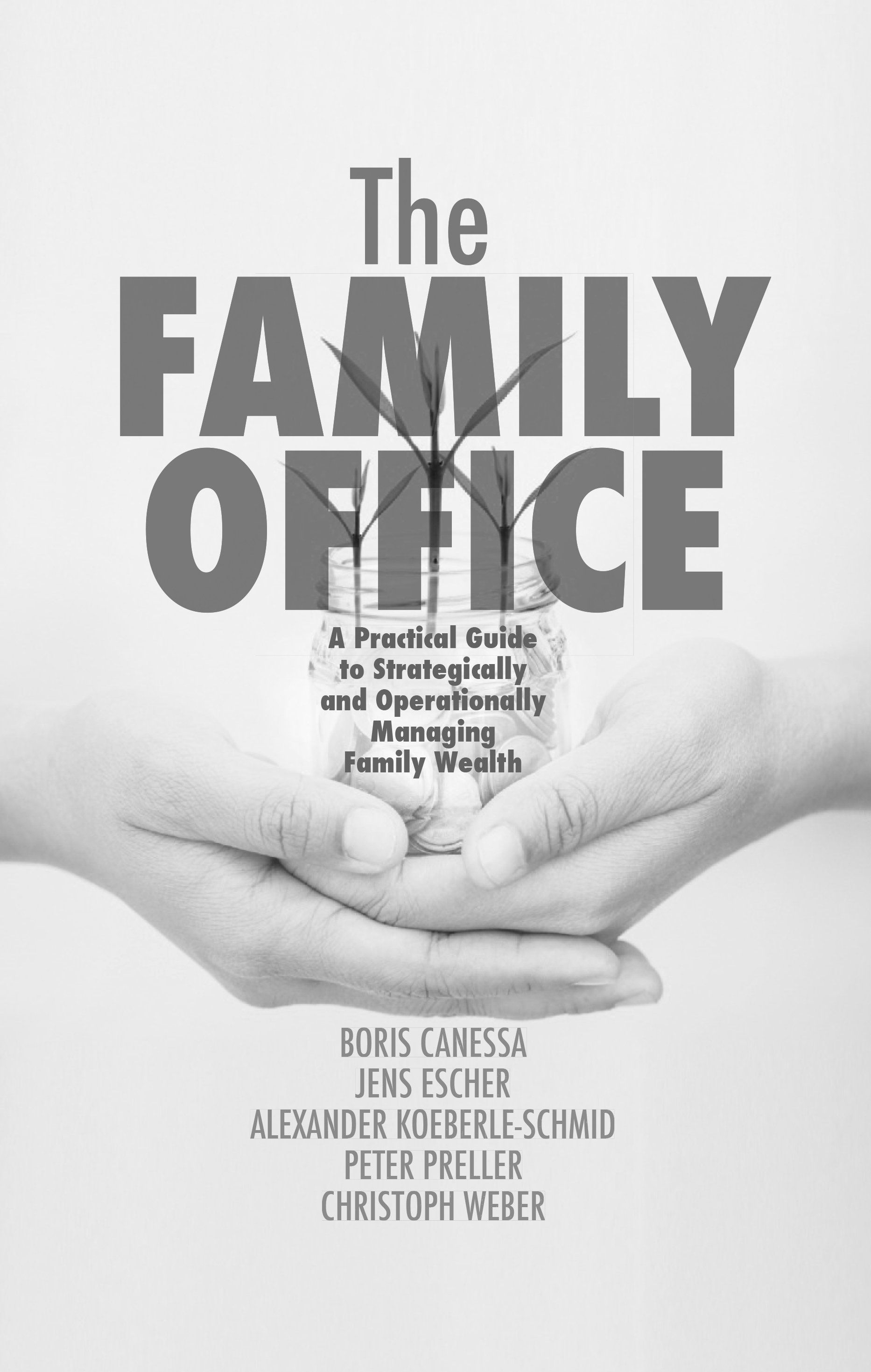Establishing a successful Family Office
Family office must be free of conflicts of interest

A family office - as a self-contained organisational unit belonging to one or more families or individuals - controls and manages wealth, advises in tax, legal and other areas, and sets up family governance, succession plans, and philanthropic engagements. Family office employees provide services to family members, in a way that is free of conflicts of interest.
Family offices are often founded when the business is sold. These changes may leave the family feeling at risk of falling apart. The loss of the company mission can leave a void, particularly among family members who were active in the business.
This is not the case when families are still in business together and family members decide to manage their individual assets together, or when the family decides to put some assets – such as real estate or minority investments – into a family office that is managed separately.
When a family office is set up, it should run as a company. It should be professionally managed, as any other company, with a vision, mission, strategy, a good governance structure and the right people.
Expectation: professional wealth management and promoting family unit
Family offices are usually established to achieve a greater degree of professionalism and effective wealth management. In some cases, this occurs through active management of stock portfolios.
The family office makes direct, cost-effective and transparent capital investment, benchmarking against other family offices. With time, the family office tailors its wealth management to fit the needs of the family, to the advantage of all of its clients.
The family office also plays an important role in reinforcing a family’s shared sense of identity. It is important for families to be aligned and connected to the family office, by developing a family constitution and a wide range of family governance structures. This is the basis for handing over the wealth and staying close as a family across the generations.
Does it make sense to have your own family office?
It is important to be clear about the scope and nature of a family office, as this informs the costs involved in this project. When thinking of a very small structure with one family officer, one assistant and one secretary, costs could add up to about £380,000 annually.
With a cost burden of 0.6 % of the total assets, a family would need at least £65 million in assets to be managed by the family office. When thinking about a small to medium structure family office that costs about £1.1 million a year, around £180 million in managed assets would be needed.
If the family has less than £65 million, they should work with a multi-family office. If they have between £65 and £180 million, they should consider founding their own family office, but think about which services could be outsourced. Wealth above £180 million would definitely justify building a single family office structure.
Success factors for an own family office
When running a single family office, it is necessary to develop strategies and governance structures that fit to the size and scale of the assets and the family.
- Don’t attempt too much at once: Your family office can only justify its own existence by providing services significantly better than the public competition. Too much is attempted in the euphoria of the founding phase, which often results in disappointment later, when some services fall short of the competition.
- Defining central services: This includes reporting across all asset classes, all portfolios and real estate or private equity investments, in a consistent and comprehensible way.
- Select between two and four asset classes: The family office should manage only those asset classes that matter most to the family. Sometimes it is real estate, sometimes direct investments, sometimes liquid assets. All other assets that are hold by the family should be managed by experts outside of the family office.
- Pick loyal and experienced employees: The key to a functioning family office are its employees, who work exclusively in the interest of the family members. What is needed here are consultants experienced in selecting partners and negotiating wealth management mandates - and in particular in the negotiation of fees.
- Ensure freedom from conflicts of interest in the team: Trust in the family office relies crucially on the idea that employees act on behalf of the interests of the family. Poorly conceived bonuses (such as bonuses that encourage “risky” investment strategies or apply only for certain asset classes) can threaten this trust. An overly hasty integration of wealth management into the office can also lead to conflicts of interest.
- Have family governance measures in place: To achieve cohesion and emotional attachment to the family office, it is important to generate reasons, beside the dividends, to be involved. Families should think about developing a family strategy, documented in a family constitution. They should implement a family education programme, a guide to becoming a responsible family office owner for the next generation, intensive information and involvement in the strategic asset allocation, and active work in the family foundation, a family council and possibly a board of directors that monitors the management of the family office. The family should think about their common values and transferring the family legacy to the next generation, with mentoring and coaching, family retreats, clear rules, a family fund for entrepreneurial ventures, and so on.
Adapted from the book "Family Office" by Canessa, Escher, Koeberle-Schmid, Preller, Weber, 2019.
Veröffentlicht am 18. Oktober 2019 hier: https://www.ifb.org.uk/resources/for-owners/establishing-a-successful-family-office/










